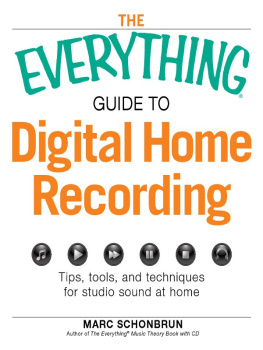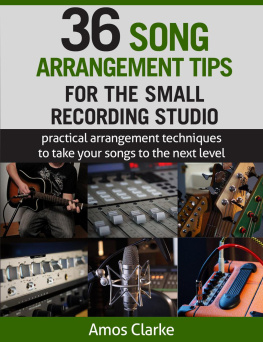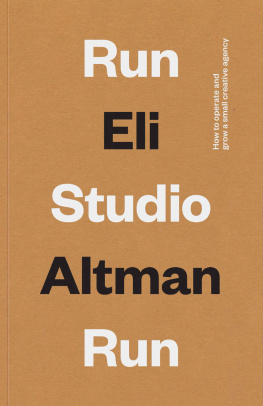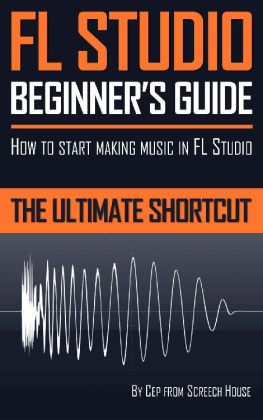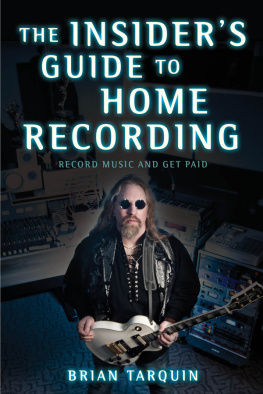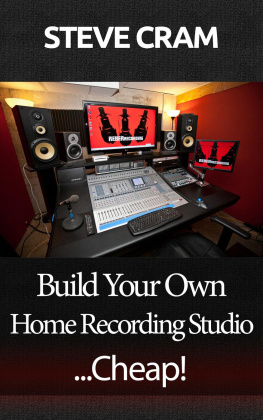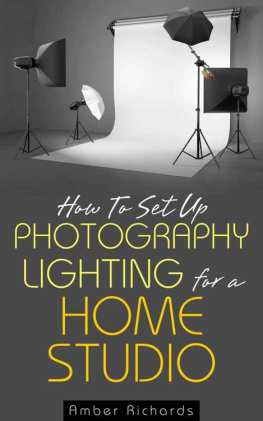

Joe Shambro is an audio engineer, music producer, and music technology writer from St. Louis, MO. He has worked exclusively as a freelance engineer with a successful home-based recording and mixing studio, as well as traveling worldwide as an in-demand live sound engineer, mixing concerts and recording live for major-label and independent clients.
As a recording engineer, he has recorded a diverse portfolio of projects for musicians, corporate, and government clients, from a concert in a bomb-proof bunker at the US Embassy in Amman, Jordan, recording tree frogs in rural Iowa, and capturing the deafening roar of a Space Shuttle launch up-close in high-definition.
Joe is also a home recording & music technology writer for The New York Times Companys About.com property, as well as a contributing writer for EQ Magazine. His work has been featured on many media outlets, including CNN, The Armed Forces Network, and Clear Channel Radio.
Appendix A: Resources on the Web |

Running a Small Business
Here are a couple of great resources for startingand runningyour small business. There are a lot of really confusing websites out there, but I always reference these two; I mainly trust these resources because theyre run exclusively by the federal government. Theyre not trying to sell you anything; they just have good information to share.
The United States Small Business Administration
www.sba.gov
Small Business and Self-Employed Tax Center
www.irs.gov/businesses/small/index.html
Recording and Audio Engineering Links
The Internet is a great place to not only network, but to stay on top of your chosen field. Audio engineering is one of those industries that is dominated by some really smart people, and Ive always found that I enjoy learning from them. Here are some great links that I find valuable during every project.
Audio Engineering Society
www.aes.org
GearSlutz.comGear and Studio Message Board
www.gearslutz.com/board
HomeRecording.comMessage Board
www.homerecording.com
Home Recording at About.com
http://homerecording.about.com
Pro Audio SpaceSocial-Networking Site for Audio Engineers
www.proaudiospace.com
ProSoundWebResources for Studios and Live Audio Engineers
www.prosoundweb.com
Professional Audio Retailers
Finding good people to buy from is sometimes hard. Any Internet search will pull up thousands of retailers all competing for a piece of your studios budget. Here are some dealers that Ive worked with personally; while Im not endorsing any one retailer, I know that many other engineers have also had positive experiences with these outlets.
American Musical Supply
www.americanmusical.com
AudioLines
www.audiolines.com
Sweetwater
www.sweetwater.com
Musicians Friend
www.musiciansfriend.com
Appendix B: Home Studio Survival Guide |

Hopefully by now, your home-based recording studio business is off and running. Maybe youve taken your first (or second, or third) paid client; maybe youve just hooked up the last piece of gear and youre waiting for the phone to ring to start selling studio time. Either way, Im guessing youve put a lot of hard work into it at this point. Be proud! Im sure youre working hard, but as we talked about before, the rewards of being your own boss are limitless.
But even with all that in-depth knowledge of the recording studio business that youve acquired throughout both this book and your own research, problems do happen. Recording studios, like any other technical, service-based business, are prone to technical gremlins which can lead to downtime and thus lost profits.
In this appendix, lets talk about some common things you might need to know call it a survival guide, a handful of worst-case-scenarios that we audio engineers face when the going gets tough.
Recovering from Data Loss
Have you ever had your hard drive crash, and in the process, lose a great amount of data? Sure, its one of the worst things that can happen to anyone in this digital age were living in losing your documents, photos, and other media but what about when your hard drive contains material from a client thats paying you, and you need it back right away?
Ive been in your shoes. Imagine this: A night before a final mixing session for a project thats lasted close to a year and my hard drive decides to die. Thankfully, all I lost was my plug-ins and a handful of documents; the bands session files were all backed up to an external hard drive.
Keeping good backups is your first line of defense against data loss. Hard drive space is cheap, so youve got no excuse to run daily backups of client material. But what if youve ignored all of the advice telling you to back up regularly, and youve had a storage failure?
If it looks like your computers hard drive has failed, check to see if its your computer hardware or the storage device itself. Sometimes, problems that look like hard drive failure can actually be a symptom of something more serious (or, less serious, depending on how much money you stand to lose if your storage system fails during a paid project). If its just your computer, you can easily swap out your storage device into another functioning machine. If its not your machine, things can quickly get complicated (and expensive). Once youve determined that youve had a storage failure, its important to act quickly.
Data recovery services are your best option if you can afford it, and the data is important enough to recover. Data recovery services take your hard drive into a clean-room environment and extract the data from the platters of the hard drive and place it onto a new, functional drive. This service can run upwards of $500 or more, but its worth every penny to get back an once-in-a-lifetime session.
If youre on a limited budget, sometimes the best thing to do is simply eat the cost and time involved in re-tracking if only one project is lost itll cost you far less than an expensive data recovery service. Your time, while valuable, is a lot easier to spend than money you dont have.
iLok and You
Earlier we talked about software piracy, and how it affects the recording studio industry. Paying for your software is the honest, responsible, and correct thing to do; youre supporting a great industry, and in turn, youll have the support you need if your essential software goes down during an important session.
Most software packages will require use of an iLok USB key. The iLok is an ingenious little device that plugs into your USB port, and essentially acts to unlock the anti-piracy features in software packages that use it. Buying one of these $40 keys is essential for all studios, since all the major plug-ins require it. You download your authorized licenses onto the iLok, and simply keep it inserted into your USB port while working. It could not be easier and its portable, allowing you to use your licenses in other studios. That being said, the iLok can become a huge pain if you lose or damage it. Youll be required to buy a replacement, and work with your manufacturers to get new licenses deposited into your iLok account, a process that can take weeks.
Next page

